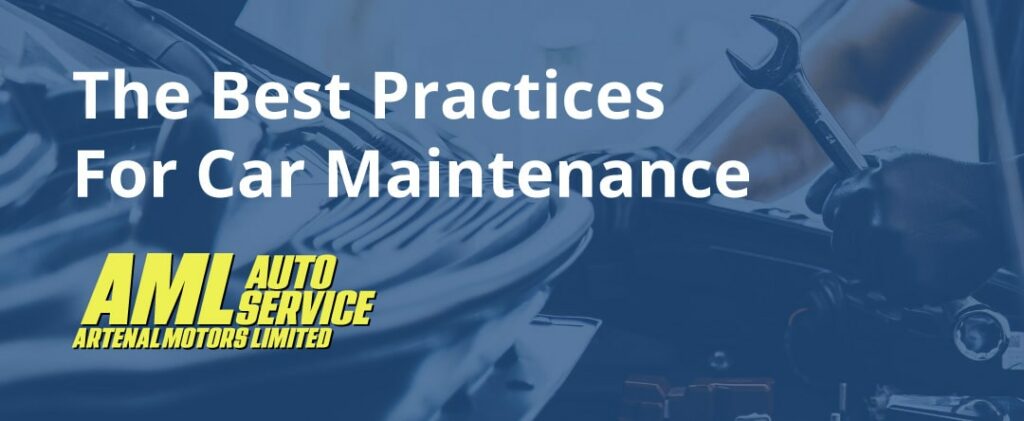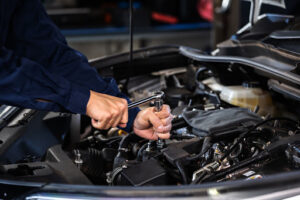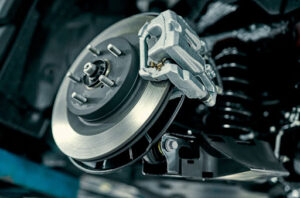To many people, their car is like part of the family. It takes them on vacations, takes the kids to sports and dance lessons, takes the kids to school, takes mom and dad to work. Taking care of this family member is crucial to its health and to the family’s safety and convenience.
Regular maintenance helps your vehicle last longer, remain reliable and maintain its greatest value. In fact, taking care of potential problems before they become actual problems can keep your vehicle in top shape and avoid unexpected and inconvenient breakdowns.

What Car Maintenance Is Required And How Frequent Should It Be?
When thinking of vehicle maintenance, changing the engine oil comes to mind for most of us. However, this is just the tip of the iceberg.
There are other fluids that need changing, as well as many items that need to be checked on a regular basis to monitor wear patterns. This is so that wear-out can be intercepted before failures can result in a breakdown.
So why is it important to do fluid changes, even oil, more often than the manufacturer recommends? Even transmission fluid is often considered for a lifetime, with no replacement required. Experience has shown me, and most other technicians, that lifetime oil is not at all realistic, nor are 20,000-kilometer oil changes.

What You Need To Know About Oils
We all know that oil is necessary to lubricate the moving parts in an engine. In a transmission or power steering system it serves to provide hydraulic pressure as well as lubrication. Brake fluid also provides hydraulic pressure. Coolant removes heat from the combustion chamber, helping to maintain optimal temperature. But these are not the only jobs these fluids perform.
All oils – engine, transmission, power steering, drivetrain – also serve to cool the parts they lubricate and to hold particulates and contaminants in suspension.
Over time, the heating and cooling of the fluids and the suspended contaminants deteriorate the oil to the point where its ability to lubricate is severely reduced. Manufacturers (for warranty repairs) and consumers have been overwhelmed with repairs, resulting from inadequate service intervals, even following those recommended by the manufacturer. Manufacturers are under pressure to deliver vehicles that meet environmental goals. Extending oil change intervals helps them meet environmental standards, but does little to extend the useful life of the engine (or transmission, or transfer case).
Most coolants nowadays are considered good for 160,000 kilometers. But considering that the best exchange that can be expected is 90%, waiting until 160,000 kilometers have rolled by, a fluid exchange would not be effective. In fact it would render the coolant less than adequate to perform as intended.

Fluids, Filters And More: Consult AML And Act Now
To summarize: don’t wait till the last minute for your vehicle’s fluid exchanges.
AML recommends the following: synthetic oil change, plus oil filter, every 8,000 kilometers or every six months; transmission and drivetrain fluids every 100,000 kilometers or every five years for a partial exchange; coolant exchange every 100,000 kilometers or every five years. These recommendations can change, depending on individual driving conditions.
AML Auto Service will be happy to provide personalized schedules based on your specific driving needs and style.
Filters are another maintenance item often overlooked with recommended maintenance. I’ve seen cabin air filters virtually clogged with debris and engine air filters clogged with a mixture of oil and dust. These don’t need to be inspected at the same intervals. However, AML does recommend replacing the cabin filter annually as part of our air quality service, and replacing air filters every two years unless it is still clean.
In addition to fluids and filters, there are many wear items that need to be monitored on a regular basis.
AML performs a thorough, complimentary inspection with every oil change and with each first-time service. Brakes, steering and suspension components, tire wear, body condition and underbody rust are inspected. We also offer valuable advice around vehicle worthiness and the cost-effectiveness of recommended repairs.


